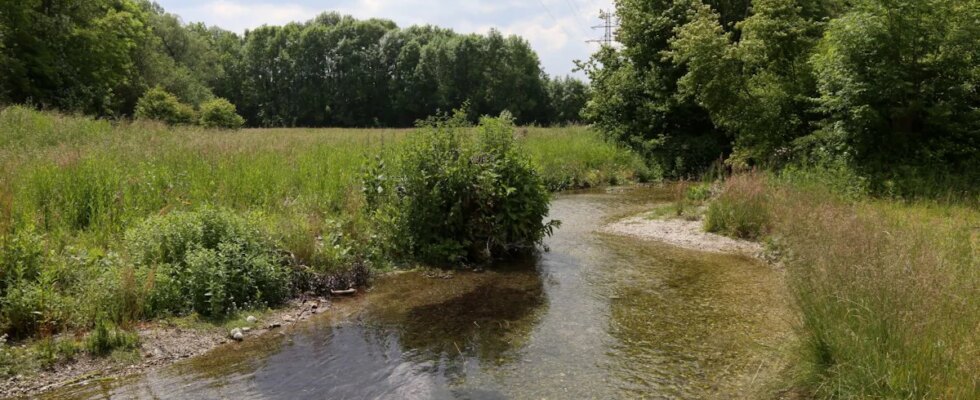“The land must be dry” is a belief that has been valid for centuries in European agriculture. After all, the enemy of a good harvest in these latitudes has always been too much wet and therefore poorly usable land. This is why rivers were straightened and packed into narrow dykes, and moors and wetlands were drained. But today a new belief is needed. “The land must keep the water in the area” would be a good one.
Even if it sounds counterintuitive at first these days: the large amount of water that is now being pumped out everywhere with desperate efforts and simply transported as quickly as possible towards the sea via the large straightened river systems could be missing in a few months.
:Climate Friday – the weekly update
Once a week – every Friday – SZ authors write about the climate crisis, environmental protection and sustainability.
Higher temperatures do not just mean more moisture in the air, which then discharges with more energy. In this story, Christoph von Eichhorn describes exactly why such weather conditions are increasing in intensity and frequency due to climate change. At the same time, Germany is also experiencing longer periods of drought during which there is a lack of water in the soil. The matter has become out of balance, from which unfortunately not only many beliefs but also our blue infrastructure originate.
What needs to change has been known for years, and in some cases is even enshrined in law. Rivers and floodplains need to be restored to their natural state, and drained wetlands need to be rewetted. Not only because near-natural floodplain landscapes or wet moors are large retention areas, meaning that in the event of an impending flood they can absorb a lot of water without causing any damage and thus keep water levels lower overall. But also in order to keep this water in the country for longer and then distribute it cleverly to where it is needed using new water management concepts. Uwe Ritzer explains the current situation of water management in Germany in this text, which is well worth reading.
However, such nature-based solutions are rarely implemented. Apart from a few individual projects, the renaturation plans are currently not being implemented on a large scale. Too many questions remain unanswered: the administrative structures are missing, the funding guidelines for farmers who would have to give up land or use it differently are unclear, the EU renaturation law has been on the brink for months and is shrinking to a skeleton. The much-sold “Natural Climate Protection” action program is rarely used because of these structural challenges.
And so there remains the last spark of hope that the terrible, destructive floods of the past few days will at least prompt some people to rethink their thinking and that the climate crisis will be taken more seriously. However, past flood disasters such as the Ahr Valley have also shown how quickly people fall back into their old patterns of needs and then hope that such a disaster will not happen to them again. Many houses there were rebuilt in the very place where they were flooded. The term “flood dementia” is in circulation.
On the other hand, we also need to learn more about psychological mechanisms such as repression and wishful thinking. This will enable us to reflect on and then outsmart our often counterproductive internal reflexes. Hopefully there will be enough time for this.
(This text is from the weekly Newsletter Climate Friday that you here free of charge can order.)

